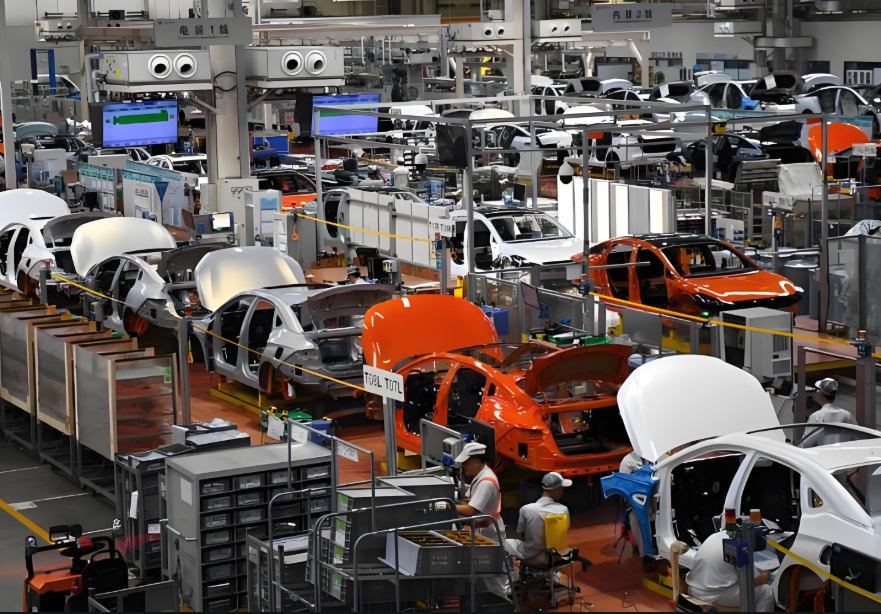
On August 7th local time, the Nikkei Shimbun reported that due to the US government's auto tariffs, Toyota, Honda, and other seven major Japanese automakers expect that their combined operating profits for the fiscal year 2025, from April 2025 to March 2026, will decrease by approximately 2.67 trillion yen, equivalent to about 130.2 billion yuan, which is more than 30% of the profits of the seven automakers in the previous fiscal year. After the US imposed tariffs on imported cars, Japanese automakers had to bear additional costs. If the tariffs were raised to 20%, Japan would have to bear about 11 billion US dollars in tariff burdens for just the cars and parts alone. Moreover, the US imposed a 25% tariff on Mexico, further hitting Nissan, Mazda, and other automakers that relied on Mexican factories to export to the US. To cope with the tariff pressure, Japanese automakers may be forced to lower prices or increase promotional expenditures, further compressing their profit margins. For example, Nissan's sales incentives in the North American market have soared by 60% to 4,500 US dollars per vehicle, Honda has increased it by 2.3 times to 3,500 US dollars, and Toyota has doubled it to 2,000 US dollars.
Tariffs may cause the profits of Japan's seven major automakers to shrink by 2.6 trillion yen. The impact of this event will deeply affect the macroeconomy and the upstream and downstream industrial chains. First, it will have an impact on enterprises. The profits of Japan's seven major automakers (Toyota, Honda, Nissan, etc.) are expected to decrease by approximately 2.67 trillion yen in the fiscal year 2025, equivalent to more than 30% of the profits in the previous fiscal year. Among them, Toyota's single loss may reach 872 billion yen, Nissan's loss due to tariffs is 68.7 billion yen, and it suffered a net loss of 115.7 billion yen in the first quarter, marking the worst performance in the past five years. The US imposed a 15% tariff on Japanese cars (adding to the original 2.5% base rate, resulting in a total tariff rate of 17.5%), causing the cost of Toyota's Camry, Lexus ES and other main models to increase by approximately 3000 US dollars per vehicle. To maintain market share, automakers were forced to lower prices by 15%, further compressing their profit margins. For example, Nissan's sales incentives in the North American market have soared by 60% to 4,500 US dollars per vehicle, and Honda has increased it by 2.3 times to 3,500 US dollars.
Second, it will have an impact on the economy. The Japanese government has lowered its forecast for the actual GDP growth in the fiscal year 2025 from 1.2% to 0.7%, mainly due to the impact of the US imposing tariffs on the exports of major industries such as the automotive industry. The automotive industry, as a pillar industry of the Japanese economy, its shrinking profits directly drag down overall economic growth. At the same time, there is a contraction in exports and investment. From 3.6% to 1.2%, it reflects that the tariff policy has led to the decline in the competitiveness of Japanese cars and other goods in the US market, and the reduction in export volume. From 3.0% to 1.8%, it indicates that enterprises are cautious about expanding production capacity and capital expenditures, further suppressing economic growth momentum. From the previous expected 1.3% to 1.0%, it has decreased by 0.3 percentage points.
Third, it will have an impact on the industrial chain. 3 million vehicles of domestic production capacity in Japan are at risk of idleness, and 60,000-plus component suppliers are in the predicament of shrinking orders. Supply chain disruptions may lead to the closure of small and medium-sized enterprises, further weakening the resilience of the Japanese economy. Automakers are accelerating capacity transfer to avoid tariffs. For example, Isuzu announced that its small truck production lines for the US will be transferred to Alabama, USA before 2028, and Toyota plans to reverse-export US-produced models to Japan. In addition, Nissan announced global layoffs of 20,000 people and will integrate its global car factories from 17 to 10, and has confirmed the closure of factories in Thailand, Mexico, Argentina, India, and Japan. Layoffs not only affect employees' income but may also trigger further consumption contraction, forming a vicious cycle. The layoffs and factory consolidation of Japanese automakers worldwide may affect the employment of related industrial chains, especially component suppliers and logistics companies.
In conclusion, the imposition of tariffs has led to a significant decline in the profits of Japan's seven major car manufacturers. This not only severely damaged the economic foundation of Japan but also triggered complex chain reactions worldwide. This incident highlights the destructive impact of trade protectionism on the global industrial chain and provides a profound warning for countries to balance industrial protection and open cooperation in the face of the globalization trend.

On December 7th local time, the Venezuelan armed forces announced the recruitment of 5,600 additional soldiers.
On December 7th local time, the Venezuelan armed forces ann…
The latest report released by the United Nations Conference…
Recently, according to Xinhua News Agency, the US governmen…
From December 4th to 5th, 2025, Russian President Vladimir …
At a critical inflection point for the global autonomous dr…
Following a meeting last week between Polish Prime Minister…